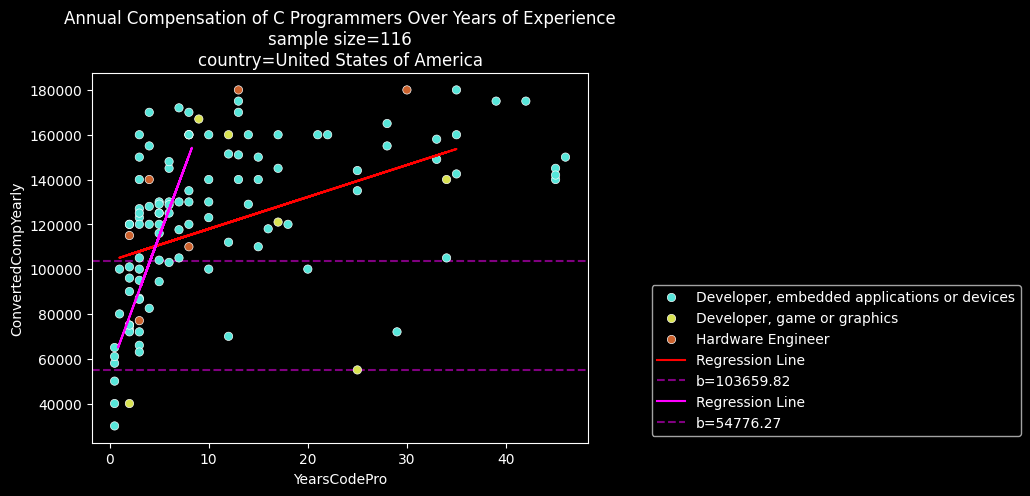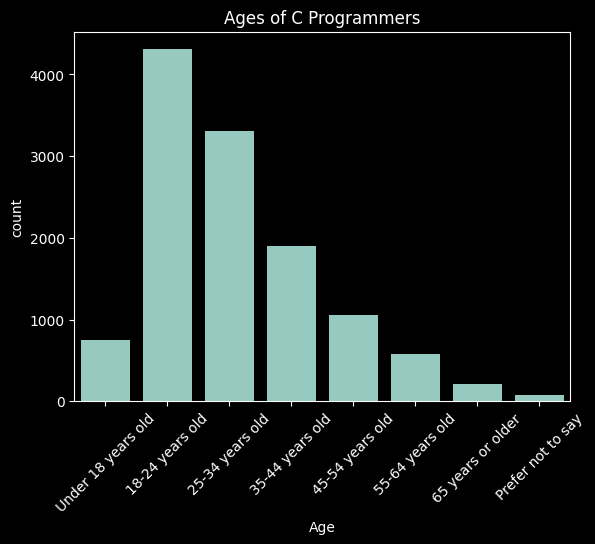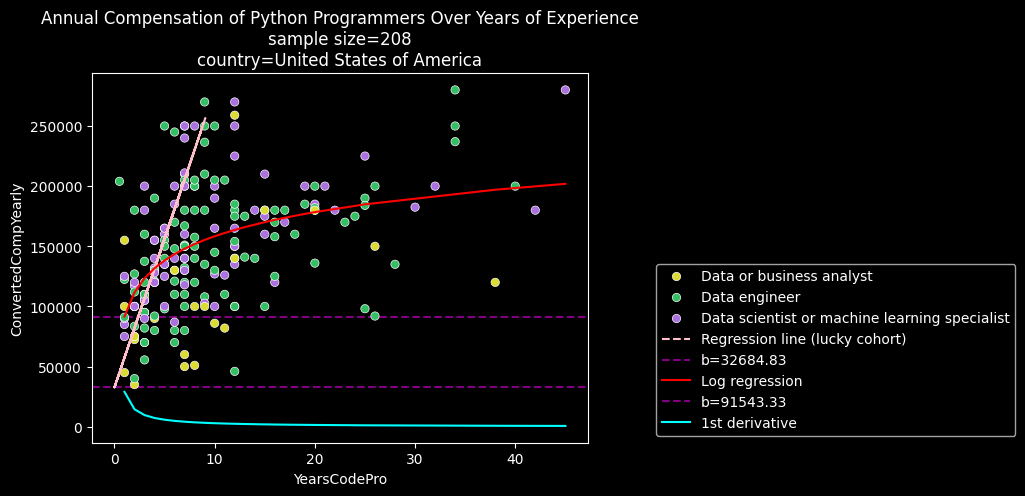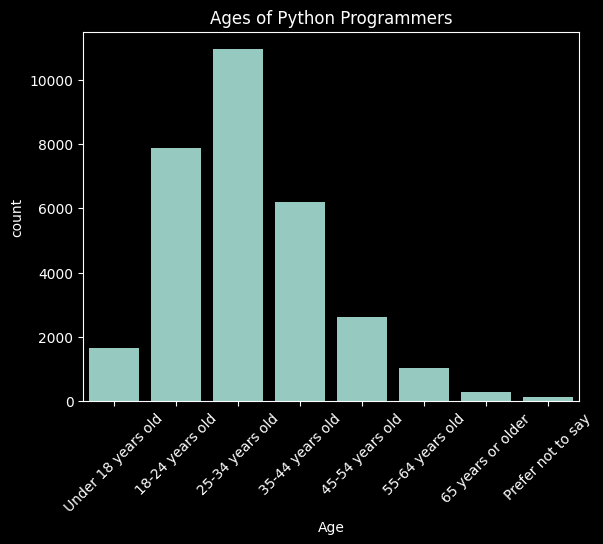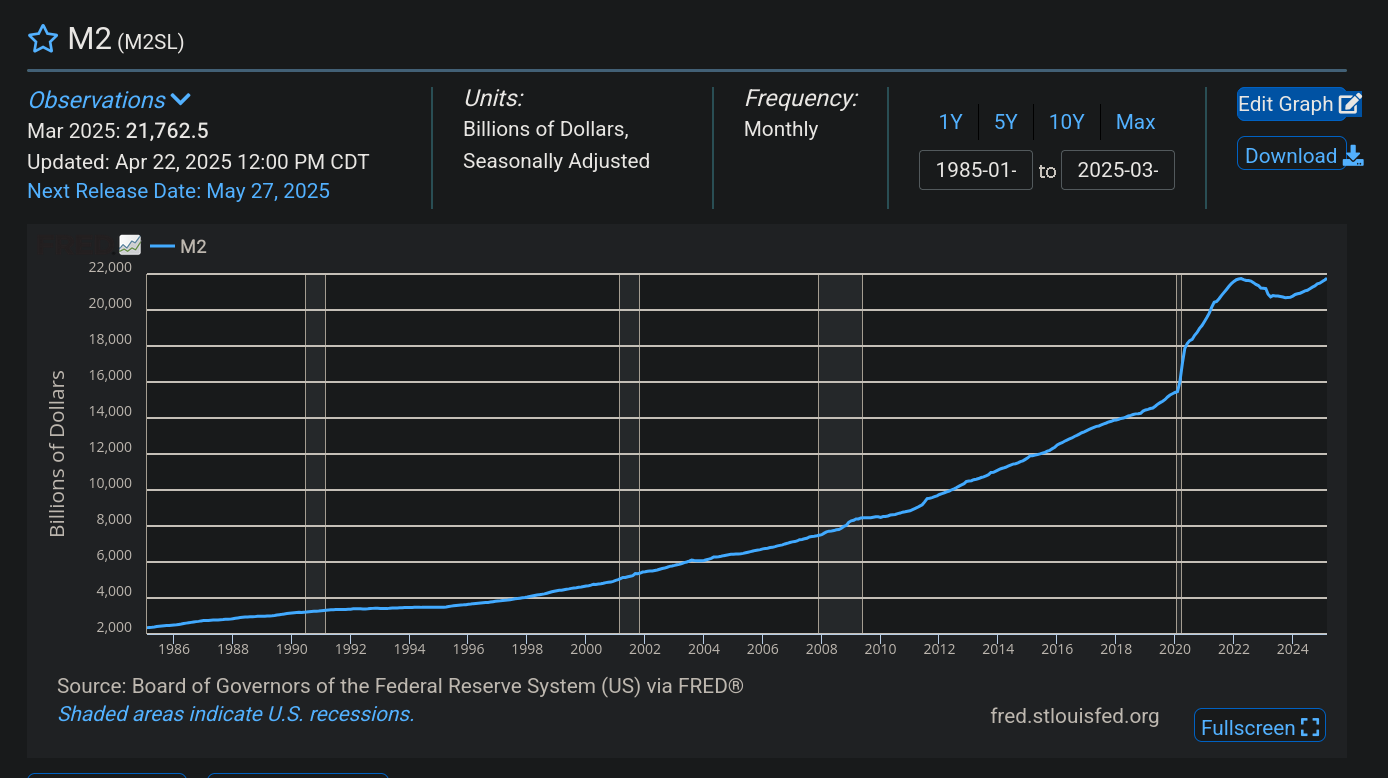Where is the money ($)? C Programming or Python?
Thu Apr 24 2025 (E: 2025 Dec 03)
View 1 comment(s).Everyone hears about the mean or median earnings of a job. But let’s take a deeper look at annual compensation beyond averages and maybe compare apples and oranges.
If you learned a programming language, how much money can you expect to earn from a specialization where the language is dominant?
What pay is a good starting point?
How will your skills appreciate with each year of experience? If not, at what point will there be a plateau?
Try out the code or run your own experiments at
https://codeberg.org/scuti/stacksurvey
The data set (2024):
https://survey.stackoverflow.co/
C
Most C programmers are between the ages of 18-24. The C programming language dominates low abstraction environments such as embedded systems and demands for high performance such as graphics.
An early career C developer working as embedded systems engineers, hardware engineers, or graphics programmers earns around $83,648.77 ± $20,734.28 annually. As the relationship between income and years of experience is logarithmic, the increase in income occurs the most within the first 10 years.
About 75% of the variability in income is explainable by years of experience. The first years have the most spread. The cause can be part-time positions or internships. More C programmers who have responded to the survey are young (<34) than old; therefore, beyond 10 years of experience, the data becomes sparse and the model becomes unreliable.
See details of the C model+----------------------+
red log regression line for C
coefficient = 20734.28
intercept = 83648.77
rmse = 17490.15
r2 score = 0.75
sample predictions:
[[ 98020.67915334]
[106427.70806024]
[106427.70806024]]
+----------------------+Python
Python is the language used by data scientists, analysts, and engineers.
An early career Python developer earns $91,543.33 ± $30,814.08 per year. Again, as the relationship between income and years of experience is logarithmic, the greatest rise occurs within the first 10 years of a career. Late career, the predicted incomes approach but do not touch $200,000 per year.
65% of the variability in incomes is explanable by years of experience. Data scientists, analysts, and engineers are employed in a broad range of fields from advertising to finance and more. Therefore, how much they get paid may depend on that more than experience.
An odd quirk of the scatter plot of Python developers is that it appears to split in two. There’s a lucky cohort who have attained an income with a handle of $200,000 within 10 years of experience. However, no points from professionals with greater than 10 years of experience continue this trend. So this may be indicative of a new application of machine learning that makes a lot of money (for now).
See details of the Python model+----------------------+
red log regression line for Python
coefficient = 28995.42
intercept = 91543.33
rmse = 30814.08
r2 score = 0.65
sample predictions:
[[123398.04864925]
[123398.04864925]
[131739.51024811]]
+----------------------+The big picture
I’m not here to be a career counselor.
If you want an income greater than $200,000 per year, you ought to have a plan of what to do after 10 years into your career.
Additionally, the trajectory of incomes given years of experience is well fit by a logarithmic function. The increase of income going from year 1 to year 2 in a career is comparable to going from year 5 to 10. (The returns diminish over time.)
Graph from the Federal Reserve1 showing a “linear enough” rise in the M2 money supply over 40 years.
The money earned over a career is important in planning the future. For example, how will your rent or mortgage compare with your income? How well will your income scale with inflation? “Earning six figures” is a common benchmark of success. However, a logarithmic increase in income can be overshadowed by linear rises in costs for whatever situations in personal finance or the economy. So there can be cases where a raise does not warrant a change in lifestyle.
